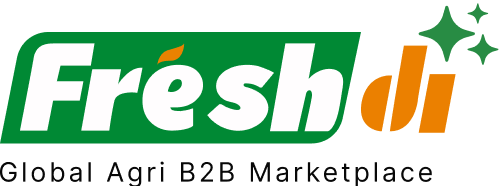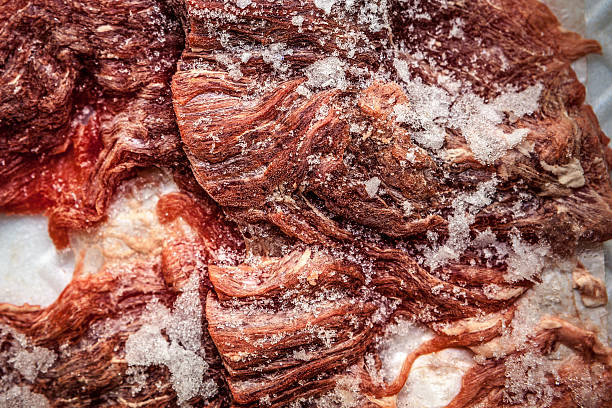Introduction – Current State of Play: The Frozen Meat Sector in Egypt
July 2025 has ushered in major transformations in Egypt’s frozen meat market. From new government policies to shifting trade dynamics, the sector is at a pivotal point. Egypt has just unveiled a revamped national commodity exchange, led by the Future of Egypt for Sustainable Development, a military-linked agency. This move is designed to regulate the import and export of essential goods, including frozen meat, and to act as a stabilizing force for prices and supply across the country.
This change comes as Egypt continues to battle rising food prices and supply chain disruptions. Following massive wheat import declines, the government is now focusing heavily on ensuring steady meat supplies. Over the past two years, Egypt has signed deals to import cattle and frozen meat from countries such as Sudan, Djibouti, Tanzania, Uganda, and India. The goal? Diversify supply sources and curb inflation.
However, these policy shifts haven’t come without collateral damage. Local poultry producers are struggling, especially due to the influx of cheap frozen chicken from Brazil. Farmers are losing around 7 EGP (about $0.14) per kilogram of live chicken—a concerning trend for domestic agriculture.
In this fast-changing environment, businesses sourcing frozen meat from Egypt need to stay alert, flexible, and informed. That’s where platforms like Freshdi come in—providing real-time insights, verified supplier connections, and RFQ trend tracking to help businesses make smart, strategic decisions.
Deep Dive – Breaking News: Critical Updates & Their Effects
Let’s dig into the developments shaking up Egypt’s frozen meat market:
-
National Commodity Exchange Announcement (July 2025): Egypt is centralizing control over essential imports using a new commodity exchange. Think of this as a financial air traffic controller for meat, grains, and other key goods. It’s meant to stabilize prices, but it’s also adding a layer of bureaucracy that some traders are wary of.
-
Meat Import Agreements: Egypt’s deals with India and several African nations are starting to pay off. The country now imports 1,000 tons of frozen meat from India and over 25,000 live cattle from Sudan and Djibouti. This helps buffer global price shocks and ensures availability during peak demand periods.
-
Extended Shelf Life for Frozen Liver (January 2025): The government extended the shelf-life of frozen beef liver from 7 months to 12. This might sound minor, but it gives retailers and importers more breathing room for inventory planning.
-
Government Push to Support Local Production: Prime Minister Mostafa Madbouly has convened multiple high-level meetings to boost domestic meat production and reduce reliance on imports. Measures include expanding slaughterhouses and subsidizing meat through more retail outlets.
Top 5 Verified Frozen Meat Suppliers in Egypt – Navigating Current Market Realities
If you’re looking to source frozen meat from Egypt in July 2025, these are the top-performing suppliers based on export activity, global reach, certifications, and buyer reviews on Freshdi:
-
Demeter Green Earth Company
Known for its commitment to sustainability, Demeter offers a wide variety of frozen meat products with strict quality control. They also have strong export capabilities across MENA and Europe. -
Mima Foods
A trusted name for consistent quality and delivery timelines. They’ve received glowing reviews for their frozen beef and poultry offerings. -
Mahmoud Emad Eldin Anwar
A rising player in the frozen meat space, Mahmoud Emad Eldin Anwar is known for competitively priced products and responsive customer service. -
Abna Al Wadi For Sorting And Packing Agricultural Crops
Although primarily an agricultural company, they’ve expanded into frozen meat and are making waves due to their modern processing facilities. -
Egyswiss Food Company
Egyswiss is a well-established brand with a reputation for premium frozen meat, especially beef cuts tailored for both retail and foodservice sectors.
Dynamic Ranking Note:
Supplier rankings are dynamic. Platforms like Freshdi may update their “Suppliers of the Month” or “Top Performers of the Quarter” based on real-time RFQ performance, buyer feedback, certifications, and shipping reliability.
Market Navigation – Strategic Responses to Today’s Frozen Meat Landscape in Egypt
Navigating Egypt’s frozen meat market right now is like playing 4D chess. The rules keep changing, and every move has ripple effects. So, what should businesses do?
Opportunities to Seize
-
Longer Shelf Life = Smarter Buying: Egypt’s decision to extend the shelf life of frozen beef liver to 12 months means importers can now store more product, reduce spoilage, and optimize shipment schedules—all of which save money.
-
Wider Import Portfolio: Thanks to new trade deals, Egypt’s frozen meat isn’t just coming from Brazil or Europe anymore. Countries like India and Tanzania are now key players. This means a more stable, diversified supply chain.
-
Government Support for Domestic Production: The state is backing local processors and slaughterhouses. This opens up partnership opportunities for companies that want to co-invest or co-brand with Egyptian businesses.
Challenges to Watch
-
Local Poultry Industry in Peril: Imported poultry is undercutting local producers, which might lead to tensions, policy reversals, or even import restrictions in the future.
-
New Commodity Exchange = New Red Tape: With the military-linked agency managing trade flows, businesses should prep for possible delays, new compliance requirements, or licensing challenges.
Tactical Moves for Buyers and Importers
-
Diversify Your Supplier Base: Don’t rely on just one or two partners. Use platforms like Freshdi to discover and vet multiple suppliers in Egypt and beyond.
-
Watch the RFQ Trends: Stay ahead by tracking real-time RFQ data. If demand for certain cuts or origins spikes, adjust your sourcing strategy accordingly.
-
Adjust Risk Assessments: With regulatory control shifting, it’s wise to build in buffer times for procurement cycles and keep a close eye on policy changes.
Conclusion – Key Takeaways for Businesses in a Fast-Moving Market
The Egyptian frozen meat market in July 2025 is both challenging and full of promise. With a new commodity exchange in play, extended shelf-life regulations, and diversified import sources, there’s a lot to navigate.
Here’s what businesses need to keep top of mind:
- Policy Shifts Matter: Egypt’s government is taking a more active role in commodity regulation. Expect more rules, but also more stability in pricing.
- Local vs. Global: While imports are surging, there’s a real push to support local production. Finding a balance in sourcing is key.
- Supplier Verification is a Must: Use platforms like Freshdi to connect with reliable, verified suppliers who are equipped to handle Egypt’s evolving market.
- Stay Agile: Monitor RFQ trends, supplier reviews, and regulatory updates to pivot quickly.
Buyer’s Checklist for Sourcing Frozen Meat from Egypt (July 2025 Edition)
✅ Check supplier certifications and recent export activity on Freshdi
✅ Verify shelf-life and storage conditions for your product type
✅ Review government policy updates impacting import/export rules
✅ Diversify partners to reduce reliance on a single source
✅ Adjust logistics timelines to account for regulatory review periods
Future Outlook – What’s Next for Egypt’s Frozen Meat Market?
Looking ahead, Egypt is likely to continue fine-tuning its balance between local production and international imports. If the national commodity exchange proves efficient, it could become a model for other sectors. Meanwhile, global trade routes and climate events will keep influencing supply chains.
For buyers, staying plugged into platforms like Freshdi will be more critical than ever. Whether it’s alerts on regulatory changes, supplier performance, or RFQ surges, Freshdi empowers businesses to make data-driven, timely decisions in a volatile market.
FAQs – Everything You Need to Know
1. Why is the Egyptian government creating a national commodity exchange?
To regulate and stabilize prices and supply of key goods like frozen meat. It aims to improve transparency and efficiency in import/export operations.
2. How can I find reliable frozen meat suppliers in Egypt?
Use B2B platforms like Freshdi to access verified supplier profiles, product catalogs, certifications, and buyer reviews.
3. Is it still viable to source poultry from Egypt given the local farmer issues?
Yes, but be cautious. Local farmers are struggling, and future policy changes could affect poultry imports. Diversify and stay updated.
4. What countries are Egypt importing frozen meat from?
As of July 2025, Egypt imports from India, Sudan, Djibouti, Uganda, and Tanzania to diversify sources and stabilize prices.
5. How does the extended shelf-life of frozen liver help businesses?
It gives importers and retailers more time to distribute and sell products, reducing waste and improving profitability.
References
- Reuters – Egypt’s Military-Linked Agency to Oversee Commodity Exchange
- Food Business Africa – Egypt Signs Meat Deals With India, Sudan, Others
- Food Business MEA – Government Steps Up to Stabilize Meat Prices
- USDA – Egypt Extends Shelf-Life for Frozen Liver
- Poultry World – Imported Poultry Hurts Local Farmers
- Freshdi – B2B Frozen Meat Supplier Platform


